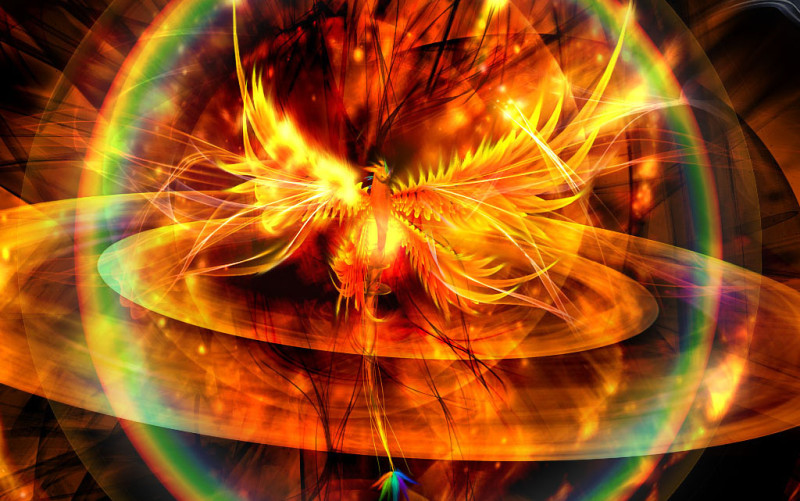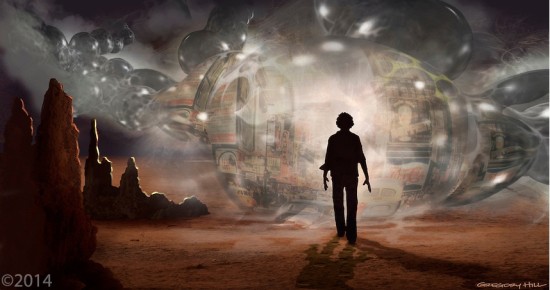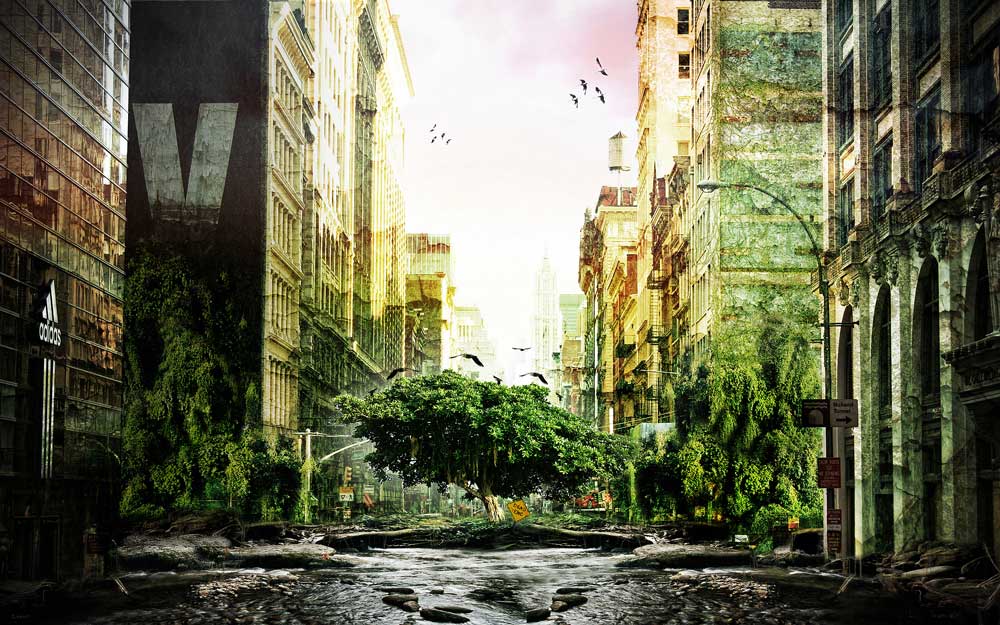“An apocalypse, translated literally from Greek, is a disclosure of knowledge, i.e., a lifting of the veil or revelation. In religious contexts it is usually a disclosure of something hidden, “a vision of heavenly secrets that can make sense of earthly realities”.”
— Source: Wikipedia
What is it about the idea of end time scenarios that make them such a common theme of the stories told by humanity? Throughout history, cultures the world over share in the telling of mythologies of a point in the future when the ‘world ends’ (the meaning of which also varies). Are these stories grounded in a truth many of us refuse to admit, or are they delusional projections of a fear not based in reality? Whether or not there comes a day when the world ends, it is hard to ignore our collective fascination with such a possibility – especially when faced with the ever-mounting doom and gloom news of today.
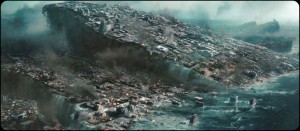 In my lifetime alone I have witnessed multiple instances of this story of apocalypse entering mainstream discourse – most notably the Y2K scare of 2000 and the end of the Mayan calendar in 2012. Recent trends in apocalyptic and post-apocalypse movies and television shows showcase many of these possible scenarios. I meet people and hear from others who not only sense an approaching world ending event, but welcome and look forward to it. Compared to the lives many of us have, it could be easy to imagine there are places on Earth where it seems like this collapse has already happened. Why are we drawn to such possibilities of collapse and what effect does that kind of focus have on our world?
In my lifetime alone I have witnessed multiple instances of this story of apocalypse entering mainstream discourse – most notably the Y2K scare of 2000 and the end of the Mayan calendar in 2012. Recent trends in apocalyptic and post-apocalypse movies and television shows showcase many of these possible scenarios. I meet people and hear from others who not only sense an approaching world ending event, but welcome and look forward to it. Compared to the lives many of us have, it could be easy to imagine there are places on Earth where it seems like this collapse has already happened. Why are we drawn to such possibilities of collapse and what effect does that kind of focus have on our world?
The Truth of The End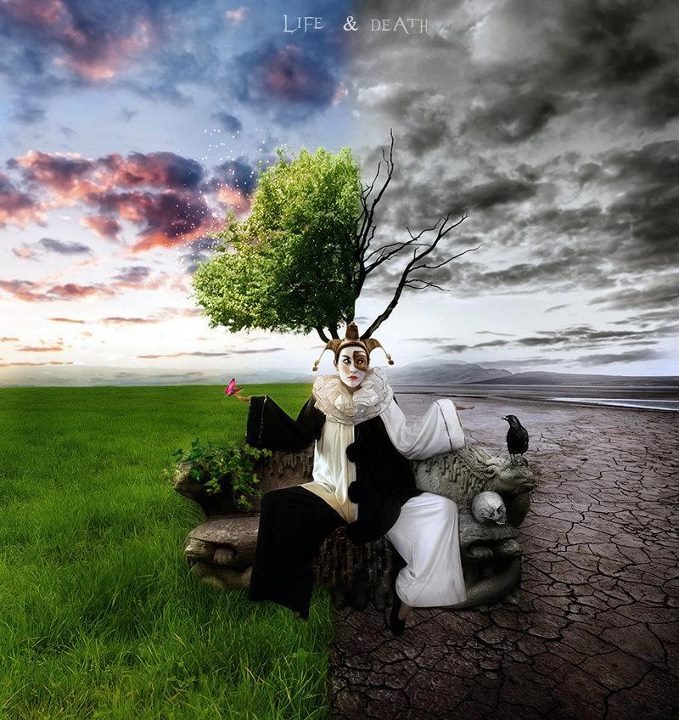
Collapse, destruction, and breakdown are part of the cycles of life, death, and rebirth. Life and death are two halves to a circle and are inseparable from each other. Remember the circle of life lesson from The Lion King? You, me, and everything we know in this life will break apart and become the Earth again. Civilizations rise and fall. Organisms spawn and die. Climates change between hospitable and deadly. Change is constant.
The truth of death is a challenging one to face. People react to me when I share words of the inevitability of death, seeing it as negative, pessimistic, and the like. That’s fine. That’s truth too. The important question is what do you do with that truth? Do you run from it, pretending it doesn’t exist? Or do you face it and allow it to guide your words and actions today? The observation of how little people speak of death gives a clue to what our usual habit of response to it is.
Death as an Adviser
Death is a difficult topic to consider because it causes us to reflect on the kind of questions that could have drastic effects in our lives today. It might spark us to really consider whether we are happy or not. It puts us in a place to think about the way we are treating others and what kind of a legacy we are leaving behind. In the Carlos Castaneda book series, his teacher Don Juan speaks of having Death as an ally to really living one’s life. He shares of using Death as an adviser to inform one’s decisions and actions in the present moment. If we consider the potential of life changing at any point, how might we live differently?
Our collective habit of choosing to not face the reality of our eventual death results in the symptom of wanting to control and maintain consistency in our lives. We want to convince ourselves that the things in our life are constant and forever. This mentality eventually leads to the habit of taking things for granted, not appreciating our life or the people in it, and in our denial of death, we fail to live fully.
In the story The Peaceful Warrior, during a conversation with Dan about death, Socrates responds, “Death isn’t sad. What is sad is that most people go their entire lives without really living.” Part of living life fully is cultivating an appreciation for it. Some people might be naturals at this. Others, like me, need to bring death into my awareness in order to fully cultivate the wonder and gratitude for life.
The balance between an awareness of death and an appreciation for life is best summed up as, “Live each day as though it were the first day of your life and the last day of your life.”
 This Too, Shall Pass
This Too, Shall Pass
Focusing too much in the extreme of death is depressing, deflating, and paralyzing (i.e. the world is ending tomorrow, so what is the point in anything?). Living in the other extreme of pretending you will live forever and ignoring death (i.e. assuming tomorrow will always come) makes it easy to get comfortable, sacrifice our time to something that does not fulfill us, and fail to fully appreciate the gifts of today. A balance of both in one’s awareness maintains an appropriate balance in one’s life – a sense of grateful wonder for novelty dancing with the humility of impermanence.
Apocalypse Revisited
Bringing this back to the fascination with stories of impending apocalypse, it seems like a denial of one’s eventual death (i.e. not able to imagine a world without you being there) leads to a projection of the fear of death into the collective (i.e. world ending scenarios). I also feel the apocalypse sensed by many is based in some truth (as I explored earlier around the truth of change and death) – as it relates to the global upheaval and converging crises we are collectively experiencing.
It is obvious to me there is massive transition taking place on the planet. There is something deep within us shifting and awakening as people sense a more beautiful world is possible. The reality of the fragility of our civilization helps us to see we do not have to accept things as they are just because that is the way we may have done it before.
Tipping the Point
So is there a tipping point? A moment in time and space when something happens that forever changes our world and casts aside what we once knew as normal? Could it be global Earth upheavals, a planetary revolution of the people, a kundalini activation of enlightenment, visitation from extra-terrestrials, an Illuminati police-state crackdown, a total economic collapse, the second coming of Christ, a nuclear war, or an incoming asteroid? I don’t know for sure, to deny possibility of them would be foolish, but my sense of it is that there are tipping points – and they are much subtler than what we expect.
I wrote of what I called a tipping point in my recent book, Dreaming Awake, which takes place in the near future. I described it, not a specific global event like so many doomsday scenarios predict, but rather, a moment (or series of moments) that each of us experiences differently. A moment when an illusion fades away and a deeper truth is revealed. I see them as moments when people find the courage to stand in vulnerability and face that which they have been running from within themselves.
A Personal Apocalypse
These thoughts are coming as a result of having made the choice to live my life as fully as I can. When I choose to devote myself to my biggest dreams in life, to fly as high as I can, I open myself to the potential of falling even further. When you open to love, you open to heartbreak. When you work towards a dream, you open to the possibility of failure. I have gone through multiple tipping points in my life – numerous personal apocalypses and breakdowns of everything I thought I knew to be true – and just as many rebirths on the other side of the life transition.
 Through these apocalyptic experiences I am able to practice and integrate the beauty and truth of the cycles of life, as well as the wisdom and humility of death. I was caught up in the hype of 2012 – felt the paralysis and hopelessness in the depression leading up to it (what’s the point of doing that if the world is ending) – projected the need for change onto some external saving force (aliens, technology, government, etc) – and sat in the powerlessness of uncontrollable upheaval.
Through these apocalyptic experiences I am able to practice and integrate the beauty and truth of the cycles of life, as well as the wisdom and humility of death. I was caught up in the hype of 2012 – felt the paralysis and hopelessness in the depression leading up to it (what’s the point of doing that if the world is ending) – projected the need for change onto some external saving force (aliens, technology, government, etc) – and sat in the powerlessness of uncontrollable upheaval.
In the experience of 2012, I learned there are gifts in facing a potential apocalypse – because it is only through the recognition of death that we are really able to LIVE fully. It is through the hopelessness and narcissism that we rekindle hope and optimism again. This gives rise to a new sense of idealism, born from the ashes of a grounded realism. It is obvious to me the way we will be living in twenty years will look drastically different than today. I got to the other side of 2012 and said to myself, “I will no longer wait to live and create the world I know to be possible.”
Integrating the Paradox
Yes, the apocalypse is happening. It is always happening. Tomorrow may come, it may not. And yes, you are alive today as a result of life emerging in the face of impossible cosmic probability. The individual and collective crisis we are navigating is a vital one – and we will emerge on the other side as a united humanity, within ourselves and between each other.
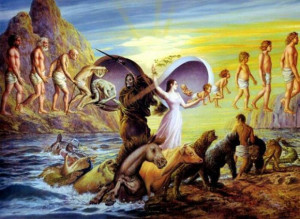 But in order for that to happen we must face the apocalypse and see it for what it is: a revealing. All of the turmoil, transition, and upheaval is simply the collapse of that which is true no longer. They are wounds rising to the surface to be healed. It might feel like we are going backward, but we are not. The struggle and pain is bringing us closer to the truth so we can collectively say, no more will we perpetuate such violence.
But in order for that to happen we must face the apocalypse and see it for what it is: a revealing. All of the turmoil, transition, and upheaval is simply the collapse of that which is true no longer. They are wounds rising to the surface to be healed. It might feel like we are going backward, but we are not. The struggle and pain is bringing us closer to the truth so we can collectively say, no more will we perpetuate such violence.
There may come a day when the Earth decides to shake us from its cradle or the economy collapses. Whatever the tipping points may bring, I trust in people. If you need help finding this faith in humanity, just look at what happens when an area is struck with disaster. The suffering is bringing rise to the awareness of a global family.
But enough of the problems – let’s get excited about the solutions! Perhaps we can see the opportunity within the crisis and discover that our greatest solutions hide within our biggest problems. The world is not ending. We are all bringing an essential piece to a new picture for humanity and the Earth.
We just need to find the courageous vulnerability to face our personal tipping points so that we can work together on our collective ones.
Thank you for taking the time to read through this blog. I offer these words to the collective as a gift and if you feel you have received value from them, I invite you to reciprocate support to nurture the growth of my work. Shares and donations (paypal donation below) are two easy, effective, and appreciated ways to ensure others continue to receive as well. All images used are sourced as links by clicking on the picture. — In gratitude, Skye
